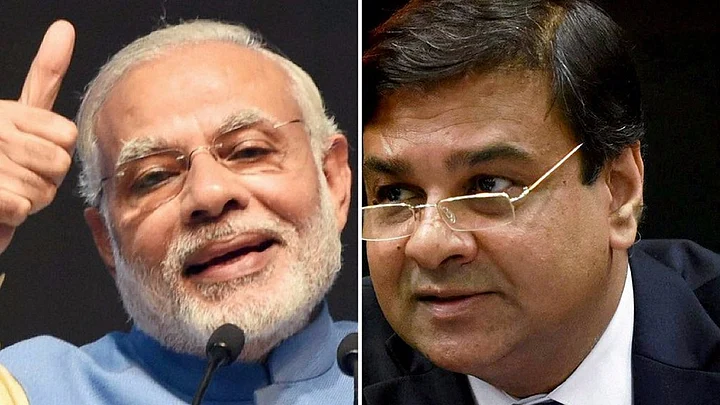Both the Reserve Bank of India (RBI) and the government seem to be unwilling to take responsibility and are passing the ‘demonetisation mess’ buck to each other.
The government, which described the move as 'pain for gain', had said the decision to ban Rs 500 and Rs 1,000 notes actually came from the Central Bank. The RBI, in its turn, said the notes were withdrawn on the government's "advice". While accolades for gain is clearly sought, neither the government nor the RBI is ready to take accountability for the “pain”.
Quoting a seven page-long letter submitted by the RBI to the Parliament's Department Related Committee of Finance headed by Congress leader M Veerappa Moily on 22 December, The Indian Express reported:
Government, on 7th November 2016, advised the Reserve Bank that to mitigate the triple problems of counterfeiting, terrorist financing and black money, the Central Board of the Reserve Bank may consider withdrawal of the legal tender status of the notes in high denominations of Rs 500 and Rs 1,000.
A month before RBI's submission and 18 days after the decision was implemented, bringing a severe cash crunch in the economy, Law and IT Minister Ravi Shankar Prasad, on 26 November, had said:
Our government has only taken decision upon the recommendation of Reserve Bank of India who is the authority to take decisions that notes of Rs 500 and Rs 1,000 will not be a legal tender.
Even Union Minister Piyush Goyal had said in clear words to the Parliament on 16 November:
The Board of Reserve Bank took this decision, sent it before the government and with the government endorsing it, Cabinet gave its nod to it to demonetise the old currency notes of Rs 500 and Rs 1,000 and bring new notes.
However, in its note to the Parliamentary Panel which was reported by The Indian Express, the RBI, under the heading "background" and "preparations" wrote:
It occurred to the Government of India and the Reserve Bank that the introduction of a new series of notes could provide a very rare and profound opportunity to tackle three major problems of counterfeiting, terrorist financing and black money by demonetising the banknotes in high denominations of Rs 500 and Rs 1,000 or by withdrawing legal tender status of such banknotes…Though no firm decision was taken initially, whether to demonetise or not, preparations still went on for introduction of new series notes, as that was needed in any case.
In fact, on 29 December, the Central Bank released information under the Right to Information Act insisting that the decision to demonetise currency notes of Rs 1,000 and Rs 500 was approved less that that three hours before Prime Minister Narendra Modi's public announcement on 8 November, 2016.
(With inputs from The Indian Express)
(At The Quint, we question everything. Play an active role in shaping our journalism by becoming a member today.)
